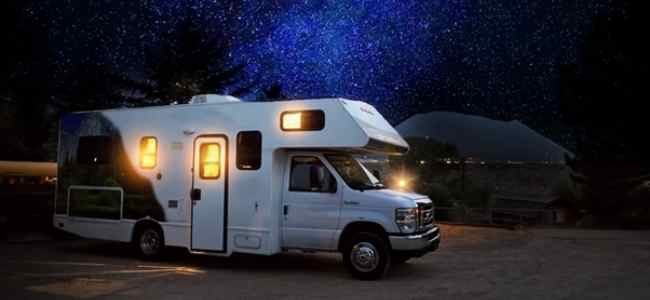The United States boasts over 16,000 campgrounds and RV parks in the nation.
That is a whole lot of places to explore if you’re an RV owner. It makes sense then that you’re thinking of buying an RV.
But before you make the big purchase, here are a couple of key things that you should know.
1. The Best Place to Buy an RV Is From Trusted Dealerships
So you’ve decided to make the leap, but now you’re wondering where to buy an RV. You’ll see ads all over the place for RVs, from private sellers as well as vehicle dealerships and shops.
The best place to buy an RV is from a trusted dealership that knows exactly what they’re doing and are experts in all things RV. You can ask about details and specs and get professional answers and advice. Turning to a dealership also means that if you already have a model in mind, you can request if they carry it.
Find dealerships that have camping trailers for sale and treat it as you would the purchase of a car, asking all the questions and doing a thorough inspection.
2. Consider Storage and Parking
This is a really important consideration before jumping into buying an RV. Every model and type comes with different storage and parking needs, but all RVs have special requirements. They are long, wide, and tall, and you may not have the garage or parking space to accommodate the RV you want (or any RV).
RVs need to be stored properly when not in use and kept in a garage to protect them from the weather. You don’t want to spend a ton of money on an RV, only for it to get damaged because you cannot store it properly.
If you don’t have the garage space you need to make other arrangements before buying an RV, such as renting storage.
3. Know the Different Types of RVs
There are a few different types of RVs to choose from and you should think about what trailer matches your lifestyle and desires. Think about what you plan to use it for, the size of the trailer, and the number of people that will be using it.
These are the common RV types to choose from:
- Park models are good for long-term vacations and resemble a home
- Speciality RVs are kitted out to meet a specific need, such as horse trailers
- Motorized RVs, also known as motorhomes, are drivable and family-friendly
- Towable RVs are pulled behind a vehicle
Each RV comes with benefits and special features. Think about what best suits your interests and consider renting different types to try them out.
4. Set a Budget
Your budget will determine whether you look for a new or used trailer and what types of features you can expect to receive. Setting a budget will help you avoid wasting time seeking out RVs that are way out of your price range.
This budget should extend to repairs, especially if you’ve bought a used vehicle. You want to feel safe in that when you go on a trip, you have the finances set aside should something go wrong.
Purchasing a new RV will mean fewer maintenance costs along the way, but as a first-time RV owner, it might make more financial sense to purchase a used vehicle. This is because you may end up selling it after a short time and you don’t want to lose too much money.
5. The Best Time to Buy an RV Might Not Be Now
Are you thinking, “should I buy an RV right now?“
The RV market is absolutely booming at the moment. The COVID-19 pandemic has limited travel, seen the temporary shutting down of many hotels, and pushed people to hit the road in camper vans.
If you’re looking for the best deal on an RV, you’re probably not going to find it at this time. The demand is high, dealers have less stock than usual, and the prices are not nearly as negotiable as they once were.
If you’re set on buying an RV and find a model that you love, scoop it up while you have the chance, as it probably won’t be available for long.
6. Think About Tow Capacity Carefully
If you’re opting for a towable model, it’s vital that you think about the vehicle you’ll be using to tow it and purchase one that won’t be too heavy for your car. You need to do a little bit of math here.
Your vehicle not only needs to be able to tow the gross weight of the trailer, but also the approximate loading weight that you’ll be adding to the trailer.
7. Make Sure It’s Inspected and Serviced
This is especially important when you’re buying a used RV. But it’s something that should be done even if you’re getting it straight from the factory. You need to ensure it’s safe and roadworthy before buying and driving it.
It’s recommended to hire a third-party RV inspector to check that a used vehicle hasn’t got any hidden problems that are going to arise when you’re 500 miles from home. Similarly, you want the inspector to check a new vehicle to ensure that it’s not a lemon that is going to depreciate as soon as you drive it out of the dealer.
Are You Prepared for Buying an RV?
It’s clear that before buying an RV, you need to determine some key considerations. The biggest ones being whether you have adequate storage options and what your towing capacity is. To be confident in your purchase, it’s always best to hire a third-party inspector and buy the RV from a trusted dealership.
If you found this article informative then keep exploring our site for more interesting posts with the ultimate lifestyle tips!


